Hybrid workplaces have been hugely beneficial for employees and businesses alike. Employees are happier and healthier, while businesses are seeing boosts in productivity and retention.
With employees splitting their time between the office and working from home, businesses have adopted a wide range of digital tools to ensure seamless communication and productivity. Unfortunately, while these tools offer immense convenience, they also introduce new security challenges.
As more data flows between multiple locations and devices, both small businesses and established enterprises need to prioritise securing their collaboration platforms to protect sensitive information and maintain business continuity.
Why Collaboration Tools Need to be Secured
The security of both collaboration and productivity tools is crucial for protecting sensitive business data and ensuring smooth operations in a hybrid work model. With these platforms enabling hybrid work environments, they also become prime targets for cyber-attacks. A single breach can expose confidential information and lead to costly legal consequences.
Beyond protecting data, businesses also need to consider compliance with regulatory requirements. Data protection laws, such as Australia’s Privacy Act, place strict obligations on businesses to safeguard personal and sensitive data. Failure to adequately secure collaboration platforms could result in non-compliance, potentially leading to severe fines and penalties.
In addition, unsecured collaboration tools can disrupt business continuity. A cyber-attack targeting these platforms could lead to downtime, hindering communication and workflow between employees, clients, and partners. By prioritising the security of these tools, businesses can not only protect their operations but also foster trust among their stakeholders.
Common Security Risks with Collaboration Tools
Collaboration tools are designed to streamline communication, but without proper security measures, they can expose businesses to significant cyber threats.
Data Breaches:
Sensitive information—such as customer details, intellectual property, and internal communications—is often shared through collaboration tools. If these tools are not secured, unauthorised parties may intercept or access this data, leading to breaches that can harm a business’s reputation and result in legal consequences.
Unauthorised Access:
Many collaboration platforms rely on password-based logins, making them vulnerable to attacks such as credential theft or brute force attacks. Without strict authentication methods, cybercriminals can easily gain access to internal meetings, documents, and other confidential data.
Vulnerabilities in Third-Party Integrations:
Collaboration tools often integrate with other apps and services to enhance functionality. However, these third-party integrations can introduce security loopholes if they lack proper security protocols or updates, creating additional entry points for attackers.
Weak Endpoints:
With employees using personal devices for remote work, unsecured endpoints can become gateways for cyber threats. Personal laptops or mobile devices that lack proper security measures – such as up-to-date antivirus software or strong firewalls – increase the risk of attacks that target collaboration platforms.
Cyber Security Best Practices to Secure Collaboration Tools
Implementing best practices company-wide to secure collaboration tools will significantly help to reduce the risk of data breaches and unauthorised access.
Enable Multi-Factor Authentication (MFA):
Adding an extra layer of security through MFA ensures that even if passwords are compromised, an additional authentication method—such as a text message code or biometric verification—is required to access the platform. This is one of the most effective ways to prevent unauthorised access.
Encrypt Communications:
Encryption protects the data shared on collaboration platforms, making it unreadable to anyone without proper access. End-to-end encryption ensures that only the intended recipients can view the messages and files exchanged, preventing cybercriminals from intercepting sensitive information.
Access Controls:
Not every user needs full access to the platform or its data. Implementing the principle of least privilege—restricting user permissions to only what is necessary for their role—can significantly reduce the risk of accidental data leaks or misuse. For example, team members should have access to only the projects or conversations relevant to their work.
Regular Security Audits:
Conducting frequent security assessments of collaboration tools helps identify potential vulnerabilities and ensures that the latest security updates and patches are applied. Regular audits also verify that the platform’s configuration aligns with the organisation’s security policies.
User Training:
Even the most secure platform is vulnerable if users don’t follow proper security protocols. Regular employee training on identifying phishing attempts, using strong passwords, and following best practices can greatly enhance the overall security of collaboration tools. This training should be part of a broader cyber security awareness program to keep employees informed of the latest threats.
How MSPs Boost the Security of Hybrid Workplaces
Securing collaboration tools in a hybrid environment requires continuous effort and expertise. Managed service providers (MSPs) offer comprehensive solutions that can greatly boost the security of your communication platforms.
Proactive Security Monitoring:
MSPs provide 24/7 monitoring to detect and respond to potential threats in real time. This ensures that any suspicious activity or breach attempts are identified and mitigated before they cause significant damage.
Incident Response and Recovery:
In the event of a security incident, MSPs offer immediate support with incident response plans to minimise disruption. They also ensure that businesses can recover quickly by restoring access to collaboration platforms and protecting critical data.
Compliance Management:
Overseeing regulatory requirements can be challenging, especially when dealing with sensitive information shared through collaboration tools. MSPs help businesses meet compliance obligations by implementing certain security policies related to industry standards, and maintaining audit trails for accountability.
Patch Management:
Collaboration platforms frequently release security patches and updates to address vulnerabilities. MSPs ensure that these updates are applied in a timely manner, reducing the risk of exploitation by cybercriminals.
Build a Secure Hybrid Workplace with Expert Support
With increasing reliance on communication and collaboration platforms, businesses must prioritise their protection to prevent data breaches and comply with regulations.
The cyber security specialists at Steadfast Solutions can maintain the integrity of your hybrid workplace. We have the security tools, expertise, and resources to protect your data and help you foster a trusted, productive working environment.




